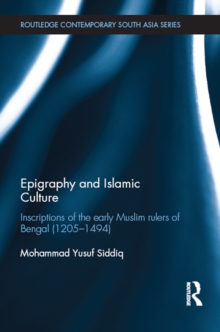
Terrorism and the US Drone Attacks in Pakistan : Killing First PDF
by Imdad Ullah
Part of the Routledge Contemporary South Asia Series series
Description
This book analyses the US drone attacks against terrorists in Pakistan to assess whether the 'pre-emptive' use of combat drones to kill terrorists is ever legally justified.
Exploring the doctrinal discourse of pre-emption vis-a-vis the US drone attacks against terrorists in Pakistan, the book shows that the debate surrounding this discourse encapsulates crucial tensions between the permission and limits of the right of self-defence. Drawing from the long history of God-given and man-made laws of war, this book employs positivism as a legal frame to explore and explain the doctrine of pre-emption and analyses the doctrine of the state's rights to self-defence as it stretches into pre-emptive or preventive use of force. The book investigates why the US chose the recourse to pre-emption through the use of combat drones in the 'war on terror' and whether there is a potential future for the pre-emption of terrorism through combat drones. The author argues that the policy to 'kill first' is easy to adopt; however, any disregard for the web of legal requirements surrounding the policy has the potential to undercut the legal claims of an armed act. The book enables the framing and analysis of such controversies in legal terms as opposed to a choice between law and policy.
An examination of the legal dilemma concerning drone warfare, this book will be of interest to academics in the fields of international relations, Asian politics, South Asian studies, and security studies, in particular, global security law, new wars, and emerging technologies of warfare.
Information
-
Download - Immediately Available
- Format:PDF
- Pages:176 pages
- Publisher:Taylor & Francis
- Publication Date:29/03/2021
- Category:
- ISBN:9781000372335
Other Formats
- EPUB from £35.99
- Hardback from £135.00
- Paperback / softback from £36.35
Information
-
Download - Immediately Available
- Format:PDF
- Pages:176 pages
- Publisher:Taylor & Francis
- Publication Date:29/03/2021
- Category:
- ISBN:9781000372335










